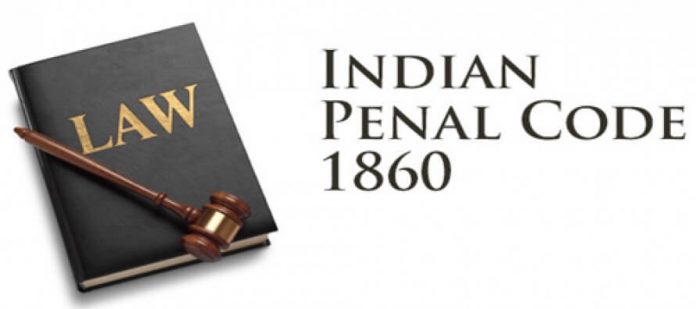This article is written by Fahad AP from Markaz Law college. This article is a discussion on the concept of accident under general exceptions of IPC.
It has been published by Rachit Garg.
Table of Contents
Introduction
The Indian Penal Code, 1860 offers some general defence which can give an accused person immunity from criminal responsibility which is based on a principle that though the person committed the offence, he cannot be held liable. This is because at the time of the commission of the offence, his actions were justified or there was no mens rea. However, he will not be held liable as per the defences provided under Chapter 4 of IPC.
Chapter 4 of the Indian Penal Code, 1860 deals with General Defences. A crime arises only when mens rea is in clubbed with actus reus. It’s based on a well-known maxim “Actus Reus Non-Facit Reum Nisi Mensit Rea” which means the act is not culpable unless the mind is guilty. By means of these General Defences, an offence can be treated as non-offence for every offence is not absolute and they have certain exceptions.
General defences can be divided into two categories:
- Excusable acts
- Justifiable acts
Excusable acts
Excusable acts are those that are exempted from the criminal liability for lack of mens rea, which is considered as a vital part in constituting a crime, from the accused person at the time of action.
Excusable acts include:
- Mistake of fact (S. 76 & 79) [Chirangi v. State 1952]
- Accident (Sec 80) [State v. Rangaswamy]
- Infancy (Sec82 & 83) [Umesh Chandra V State of Rajasthan]
- Insanity (Sec 84) [Ashiruddin Ahmed V The King]
- Intoxication (Sec .85 & 86) [ Suraj Jagannath Jadav V the State of Maharashtra]
Illustration
A child of seven years of age just pressed the trigger of the gun and caused the death of the father, then the child will not be liable for this act for lack of guilty intention at the time of action. This is based on a maxim Doli Incapax which means incapable of understanding the nature of an offence. An act of a child below 7 years is absolute immunity. He will never be held liable for any of his actions.
Justifiable acts
When the accused’s actions are legally justified, the defences, mentioned under Part 4 of IPC, are given in those particular circumstances. Prima facie, these acts are deemed crimes under normal circumstances as it is mens rea at the time of action.
Justifiable acts include:
- Judicial acts (Sec. 77 & 78) [Kapur Chand v the State of Himachal Pradesh]
- Necessity (Sec. 81) [R. V Dudley and Stephens]
- Consent (Sec. 87-92) [RP Danda v. Bhurelal]
- Communication (Sec. 93) [Dr. Deepa Sahai v. State of Bihar]
- Duress (Sec. 94) [State of Karnataka v, M. Babu]
- Trifle acts (Sec. 95) [Prosecutor v. Satyanarayana]
- Private defence (Sec96 to 106] [Mohinder Pal Jollly v.State]
Illustration
A surgeon, in good faith, communicates to the wife of the patient that the life of her husband is in danger. The wife dies as a consequence of the shock. The surgeon has committed no offence, though he knew it to be likely that the communication might cause the patient’s death
Burden of proof
The burden of proof means the duty upon a person who claims to prove a fact that goes in his favour and against his opponent. Under Section 101 of the Indian Evidence Act, 1872, the burden of proof lies down with a person who claims. This Section says that whoever desires any court to give judgment as to any legal right or liability dependent on the existence of facts which he asserts, must prove that those facts exist. When a person is bound to prove the existence of any fact, it is said that the burden of proof lies upon that person. For instance, In criminal cases, it is the duty on the prosecution to bring the burden of proof against the accused, likewise in a civil cases, the burden of proof lies upon the Plaintiff.
On the other hand, under Section 105 of Indian Evidence Act 1873, where the accused claims in order for him to get benefits of any general exceptions of Chapter 4 of IPC, the burden of proof is upon him. It is their duty on him to prove that his case falls within the exception provided under these general exceptions.
In the case of K.M Nanavati v. the State of Maharashtra (1961), the Court upheld that the burden of proof, with a view to availing defences, mentioned under Chapter 4 of IPC , lies upon the accused.
Accident under Section 80 IPC
The word accident means a sudden unintended and misfortune act by chance without any apparent cause. It is considered as one of the general defence under criminal law for lack of mens rea, as a vital part in committing a crime, at the time of action. Mere an act without a guilty mind doesn’t constitute a crime.
This section says that “Nothing is an offence which is done by accident or misfortune, and without any criminal intention or knowledge in the doing of a lawful act in a lawful manner by lawful means and with proper care and caution.”
Illustration
‘A’ is at work with a hatchet; the head flies off and kills a man who is standing by. Here, if there was no want of proper caution on the part of A, his act is excusable and not an offence.
How accident comes under Chapter 4 of IPC
Section 80 of IPC treats accidents as general defences which makes him immunity from the criminal liability as well as the punishments. According to the law, it doesn’t intend to punish anyone for things over which he could possibly have no control. A mere action doesn’t constitute a crime unless it is clubbed with a guilty mind at the time of action.
An accident falls under excusable defence which is treated as a general defence of IPC, as there is no criminal intention while occurring accident. As it is widely proved that intention is a vital part of constituting a crime.
The word ‘intention’ is nowhere defined in IPC. But words like voluntarily, deliberately, willfully and etc, are used to get the approximate meaning of word intention.
There are four elements of crime namely: Person, Mens Rea, Actus Reus and Injury. According to mens rea, it’s the most important element to be proved that a crime has been committed. It means that it was the intention of the accused to purposely / willingly and along with proper pre planning to cause harm to a person or property.
It is derived from a well-known maxim Actus Reus Non-Facit Reum Nisi Mens Sit Rea which means an act doesn’t render a man guilty of a crime unless his mind is guilty.
Essential elements of Section 80 IPC
1. Act should be done by accident.
2. Act should be without any criminal intention or knowledge.
3. While doing a lawful act in a lawful manner by lawful means.
4. With proper care & caution.
Accident in doing a lawful act
Actually, it is based on a principle that no act is an offence unless the one doing it has done it with criminal intention.
Section 80 sheds light on the fact that nothing is an offence which is done by accident or misfortune and without any criminal intention or knowledge, in the doing of a lawful act act in a lawful manner by lawful means and with proper care and caution.
Illustration
‘A’ is at work with a hatchet; the head flies off and kills a man standing nearby. Here, if proper precautions were not taken on behalf of A, then his work shall be excusable as per mentioned in the general defence of IPC and not an of offence.
Important case laws related to the accident
State of Government v. Rangaswamy [1952]
This case is based on the principle that an act done by an accident, will come under Section 80 of Indian Penal Code.
In this case, the accused went with a view to killing Hyena and heard a sound from a direction and fired a shot at it’s direction. But later it was convinced that it was a person, not Hyena. Then he pleaded that it was raining and had a bona fide impression that it was Hyena and fired the shot with a view to protecting people around him from being attacked by it.
The Court upheld that the accused will be entitled to the benefits mentioned under Section 80 of Indian Penal Code as besides other facts, there was no expectation of any other person being present in that area in which the death happened. so it is proved that the act was the result of an accident.
Tunda v. State [1950]
This case is based on a principle that when an act is done without criminal intention or knowledge, it will come under Section 80.
In this case, the accused Tunda and the deceased were friends who were very interested in wrestling and were engaged in a wrestling bout. While wrestling, the deceased got injured on his head and it resulted in his death. In this case, Allahabad Highcourt observed that the injury caused by death was the result of an accident and there was no foul play on part of the accused. In addition to that, the court held that there was an implied consent of the deceased in taking any risk in the wake of wrestling. Therefore the accused was entitled to get benefits under both Section 80 and 87.
Jageshwar v. Emperor [1924]
This case is based on a principle that when an act is not lawful in a lawful manner by lawful means, it will not come under Section 80 of the Indian Penal Code. In this case, the accused was hitting the victim and accidentally hit the wife of the accused who was pregnant. No sooner did the blow hit the head of the child than it resulted in his death. The Court held that the accused will not be entitled to the benefits of Section 80 of IPC. It’s because even though the death of the child was by accident, the act was not lawful in a lawful manner by lawful means.
Bupendra Sinha Choudasama v. State of Gujarat
This case is based on a principle that when an act was done deliberately and without proper care and caution, it will not come under Section 80 of IPC.
In this case, the appellant Bhupendra Sinha, an armed constable of special reserved police fired the shot at his superior head constable and it resulted in his death forthwith. Actually, both were Posted in the same platoon at Khumpla Dam. Then the accused pleaded that he was doing his patrolling duty.
But the supreme court observed that the act done by the accused reflects utter lack of proper care and caution and hence he can’t claim any benefits under Section 80 of IPC.
Conclusion
The criminal law deals with the different punishments for various crimes mentioned in the Indian Penal Code, 1860. Though the person commits an offence, he may not be held liable for an offence he committed.It is because every offence is not absolute, they have certain exceptions. These exceptions are provided under Chapter 4 of IPC. Through this chapter, the law bestows certain defences which escape the accused from criminal liability and its punishments. These defences are based on the principle that though a person commits an offence, he will not be held liable. It is because there will not be the guilty intention at the commission of act. According to accident, mentioned under Section 80 of the Indian Penal Code, it is considered an excusable act which escapes one from the responsibility of crime for the acts devoid of mens rea, at the end of action, are exempted from criminal liability.
References
- Indian Penal Code By C.K.Takwani
- Indian Penal Code By NV Paranjape
- Lectures on Criminal Law By Dr. Rega Surya Rao
- AIR 1950 All 95
- AIR 1929 All 932
Students of Lawsikho courses regularly produce writing assignments and work on practical exercises as a part of their coursework and develop themselves in real-life practical skills.
LawSikho has created a telegram group for exchanging legal knowledge, referrals, and various opportunities. You can click on this link and join:
Follow us on Instagram and subscribe to our YouTube channel for more amazing legal content.
 Serato DJ Crack 2025Serato DJ PRO Crack
Serato DJ Crack 2025Serato DJ PRO Crack











 Allow notifications
Allow notifications


